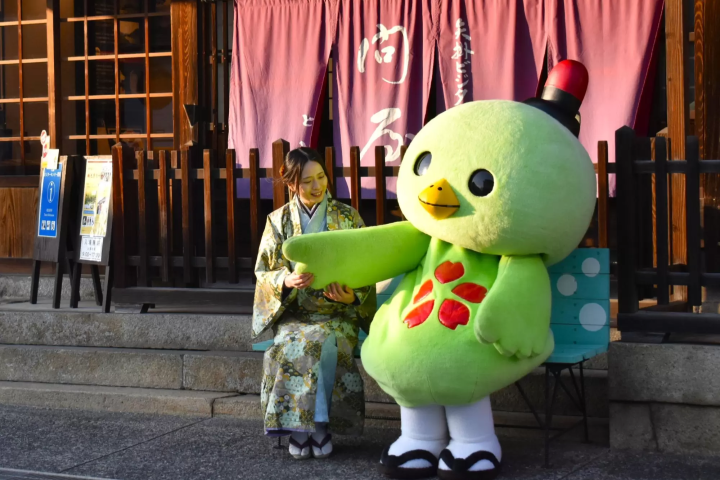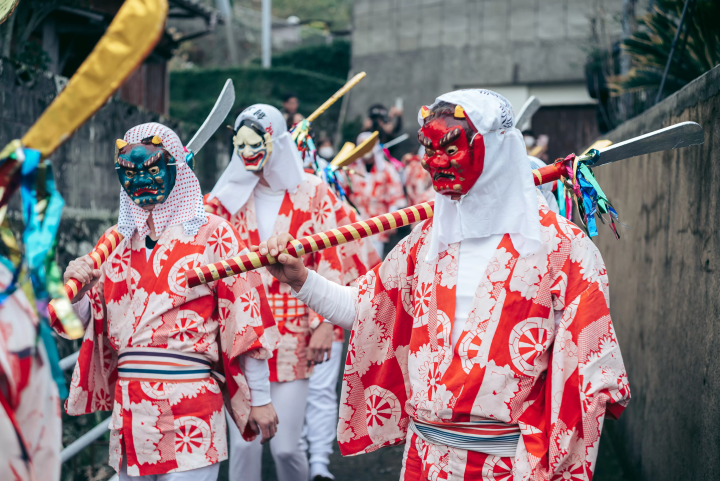So many varieties! 10 selections of the classic Okayama souvenir, "Kibi Dango"

When it comes to souvenirs from Okayama, "Kibi Dango" is the first thing that comes to mind. From the standard to the unique, there are many varieties available in stores. Here are 10 recommended "Kibi Dango" varieties.
-
Table of contents
- What is Kibi Dango?
- 1. "Momotorao" (soy sauce Kibi Dango) by Nakayama Shoyodo
- ② "KIBI DANGO" (Salted Chocolate Kibi Dango) by Nakayama Shoyodo
- 3. "Original Kibi Dango" (Sea Salt Flavor) by Koeido
- ④ "Old Kibi Dango" by Koeido
- ⑤ "Chocolate Kibi Dango" by Yamawaki Sangetsudo
- ⑥ "Kibi Dango" (Plum) Sold by: Heisei Foods, Rice Shop's Nigiri Meshi Yamada, Manufactured by: Yamawaki Sangetsudo
- ⑦ "Kinako Kibi Dango" by Hiroeido Takeda
- 8. Kibi Dango Crepe by Tanaka
- 9. "Muscat Kibi Dango" by Takehisa Yumeji Honpo Shikishimado
- 10. "Kibi Dango" by Kinmando Honpo
What is Kibi Dango?

Kibi Dango is a traditional Japanese sweet, especially famous in Okayama Prefecture. From its name, it is easy to assume that it was once a dumpling made from a plant called "kibi," but in fact, "kibi" is no longer used. Today's Kibi Dango is made from a mixture of ingredients such as glutinous rice, non-glutinous rice, sugar, and potato starch, and is characterized by its chewy texture and subtle sweetness.
The history of Kibi Dango
The history of Kibi Dango is deeply connected to the famous Okayama Prefecture folktale "Momotaro." The story of how Momotaro, on his way to defeat an ogre, shared some of these dumplings with a dog, a monkey, and a pheasant, and they became his companions, is a well-known story in Japan. As a result, Kibi Dango became known as a "lucky charm that attracts companions," and became a specialty that represents Okayama Prefecture. They have been a popular souvenir of Okayama since the Edo period, and are still beloved by tourists today.
Ingredients and manufacturing method
Modern Kibi Dango are made primarily from simple ingredients such as glutinous rice flour, non-glutinous rice flour, sugar, and potato starch. The glutinous rice flour gives Kibi Dango its distinctive chewy texture, while the sugar adds a subtle sweetness. The potato starch is also used to soften the dumplings and give them a smooth texture. These ingredients are kneaded together and then steamed to create Kibi Dango, which has a simple yet profound flavor.
1. "Momotorao" (soy sauce Kibi Dango) by Nakayama Shoyodo

This is an original Kibi Dango made by kneading soy sauce from Nakayama Shoyu Kibi Dango . The name is a reference to "Momotaro" and Tora Shoyu's "Torao." The subtle soy sauce flavor will whet your appetite, making it so delicious you'll want to keep eating it.
② "KIBI DANGO" (Salted Chocolate Kibi Dango) by Nakayama Shoyodo

The chocolate, accented with almonds, is wrapped in salty gyuhi rice cake. It is made with millet flour and salt from Okayama Prefecture. The chocolate emerges from inside the Kibi Dango, creating a delicious collaboration of Japanese and Western flavors. It is based on the interesting concept of donating 3% of sales to organizations that contribute to society, and using the donations to defeat "demons" that cause trouble for people.
3. "Original Kibi Dango" (Sea Salt Flavor) by Koeido

The packaging, designed by world-renowned picture book author Gomi Taro, was born from the desire to develop kibi dango as a treat enjoyed by children all over Japan, not just as "Okayama Kibi Dango" but as "Momotaro's Kibi Dango." The "Sea Kibi Dango" is made with "Umi no Sei," a natural sea salt from Izu Oshima . Produced using a traditional Japanese method from seawater, "Umi no Sei" contains sufficient minerals essential for the human body. It's not too sweet and has a refreshing taste that will have you coming back for more.
④ "Old Kibi Dango" by Koeido

They use specially cultivated rice grown in the Takamatsu area of Okayama City , which is famous for producing a type of glutinous rice called "Madokoro Mochi." They are characterized by a light sweetness and a chewy texture. Kibi Dango have a luxurious feel, and are often sold out on weekends.
⑤ "Chocolate Kibi Dango" by Yamawaki Sangetsudo

The soft chocolate with a rich cocoa flavor is wrapped in chocolate mochi. The mochi is surrounded by cocoa powder, making it a delicious sweet treat.
⑥ "Kibi Dango" (Plum) Sold by: Heisei Foods, Rice Shop's Nigiri Meshi Yamada, Manufactured by: Yamawaki Sangetsudo

These millet dumplings are made with sweet and refreshing domestic plum jam Kibi Dango in soft, melt-in-your-mouth mochi. The slightly transparent white mochi dough and the aroma of plums, with the pulp still inside, make them taste like an elegant dessert. This is a new type of millet dumpling, created at the request of Yamada Sangetsudo, operated by Heisei Shokuryo, a rice shop that runs Nigirimeshi Yamadamura, a popular onigiri (rice ball) shop. It is sold at Yamada in the Sanste area of Okayama Station.
⑦ "Kinako Kibi Dango" by Hiroeido Takeda

Kibi Dango designed by Noritake. With a gentle kinako flavor, it is a Kibi Dango that has been familiar to us since childhood. The packaging for the plain flavor is inspired by cherry blossoms.
8. Kibi Dango Crepe by Tanaka

This is Kibi Dango. The crepe is filled with cream and Kibi Dango. It's so delicious that you'll finish it before you know it.
9. "Muscat Kibi Dango" by Takehisa Yumeji Honpo Shikishimado

The kibi Kibi Dango is filled with Muscat nectar from Okayama Prefecture, and the fruity Muscat flavor melts in your mouth.
10. "Kibi Dango" by Kinmando Honpo

It's easy to eat as Kibi Dango without getting your hands dirty. There is also a set with millet dengaku.
Okayama Prefecture is located in the Center of Western Japan and is known as the "Land of Sunshine" due to its warm climate and little rain throughout the year. It's conveniently located halfway between famous tourist destinations like Kyoto, Osaka, and Hiroshima! It's also the gateway to Shikoku via the Seto. Okayama is also known as the "Fruit Okayama," and the fruits that are sun-drenched in the warm climate of the Setouchi are of the highest quality in terms of sweetness, aroma, and flavor. You can enjoy seasonal fruits such as white peaches, Muscat grapes, and Pione grapes! Okayama is also home to world-class tourist spots, including Okayama Castle, Okayama Korakuen Garden, one of Japan's three most famous gardens, and Kurashiki Bikan Historical Quarter, which boasts history, culture, and art!
The contents on this page may partially contain automatic translation.





























![[2026 Latest] Dogo Onsen and Matsuyama Castle 1-night, 2-day trip by express bus from OCAT](https://resources.matcha-jp.com/resize/720x2000/2026/02/02-257354.webp)
